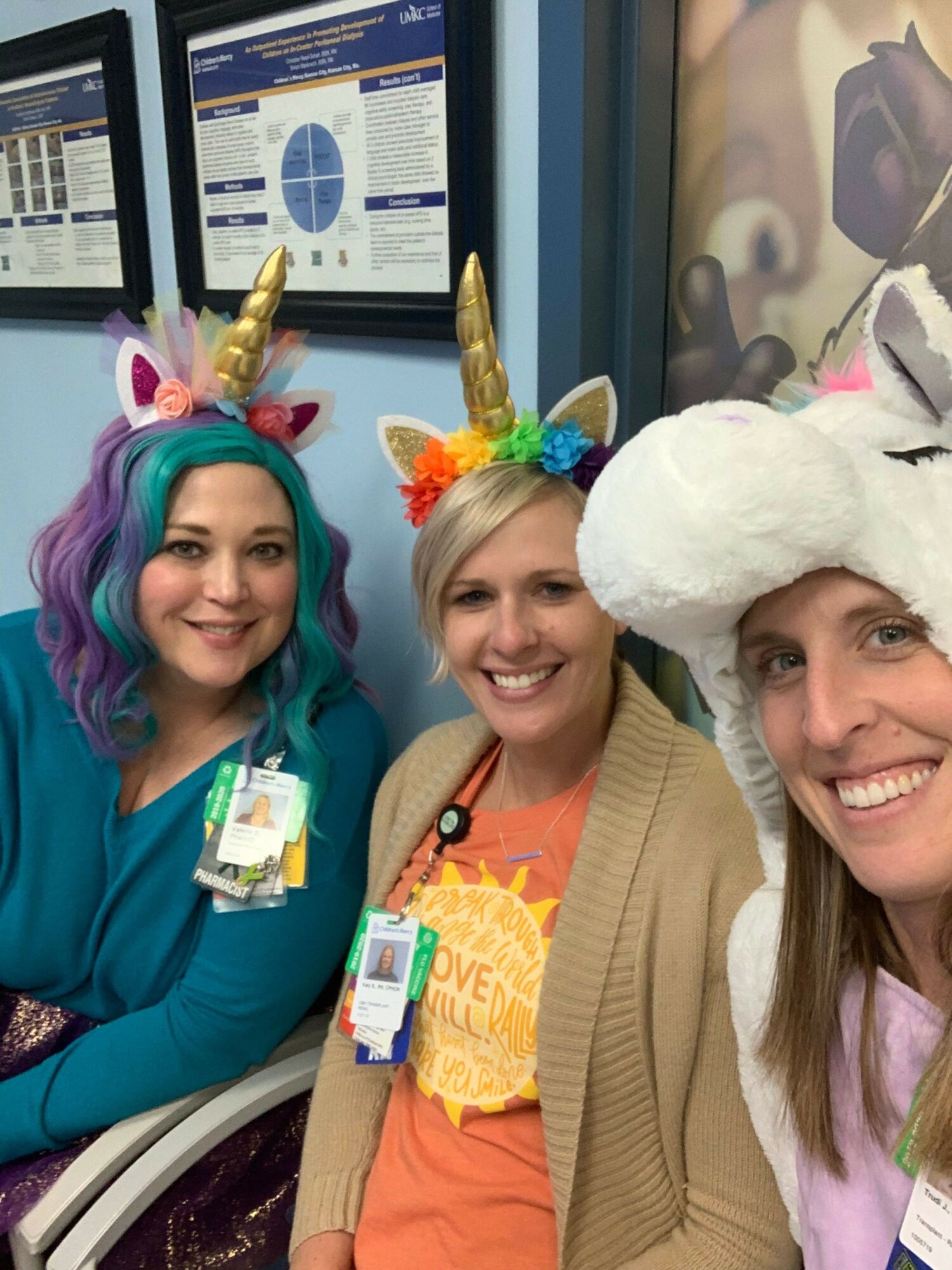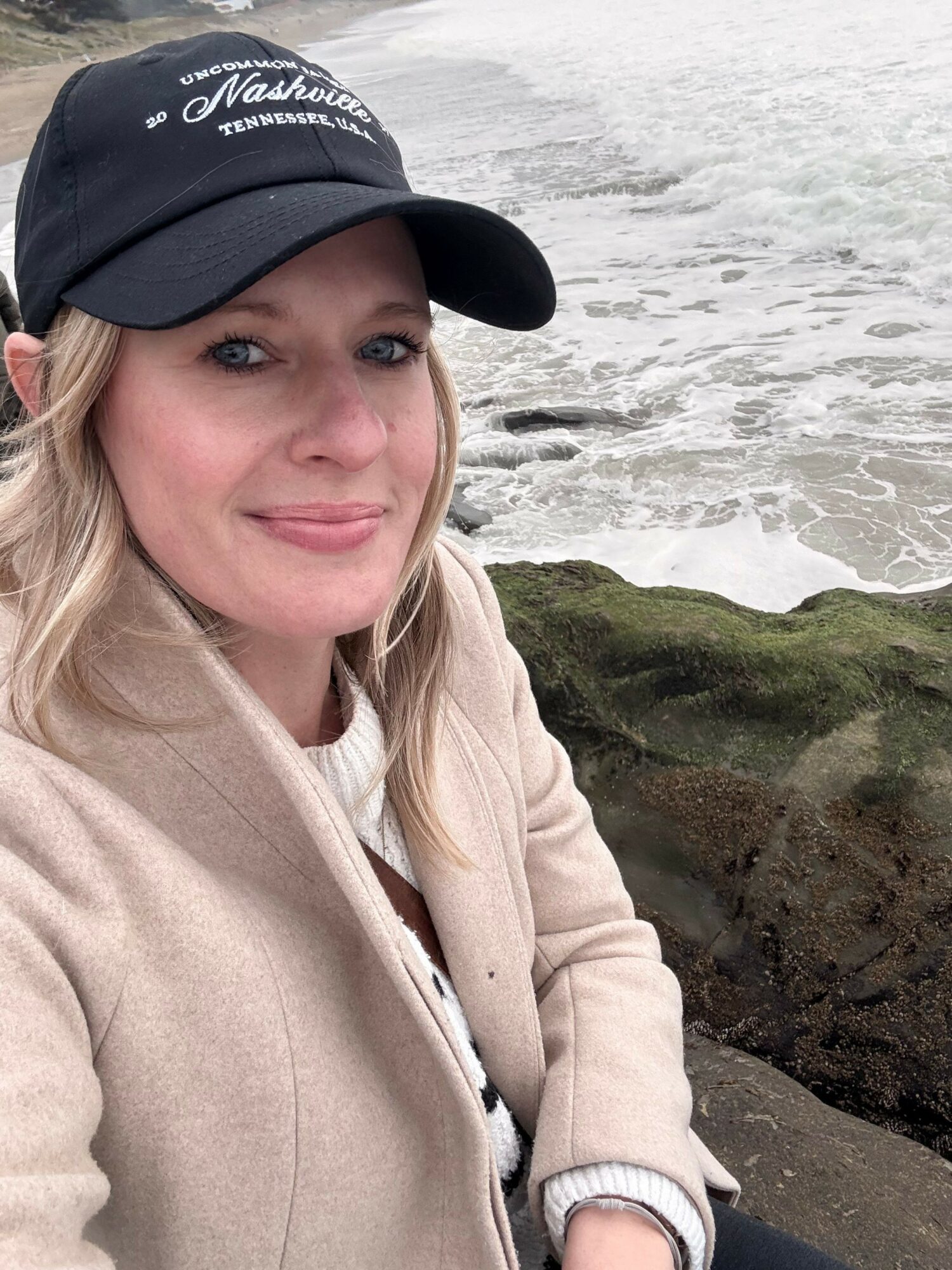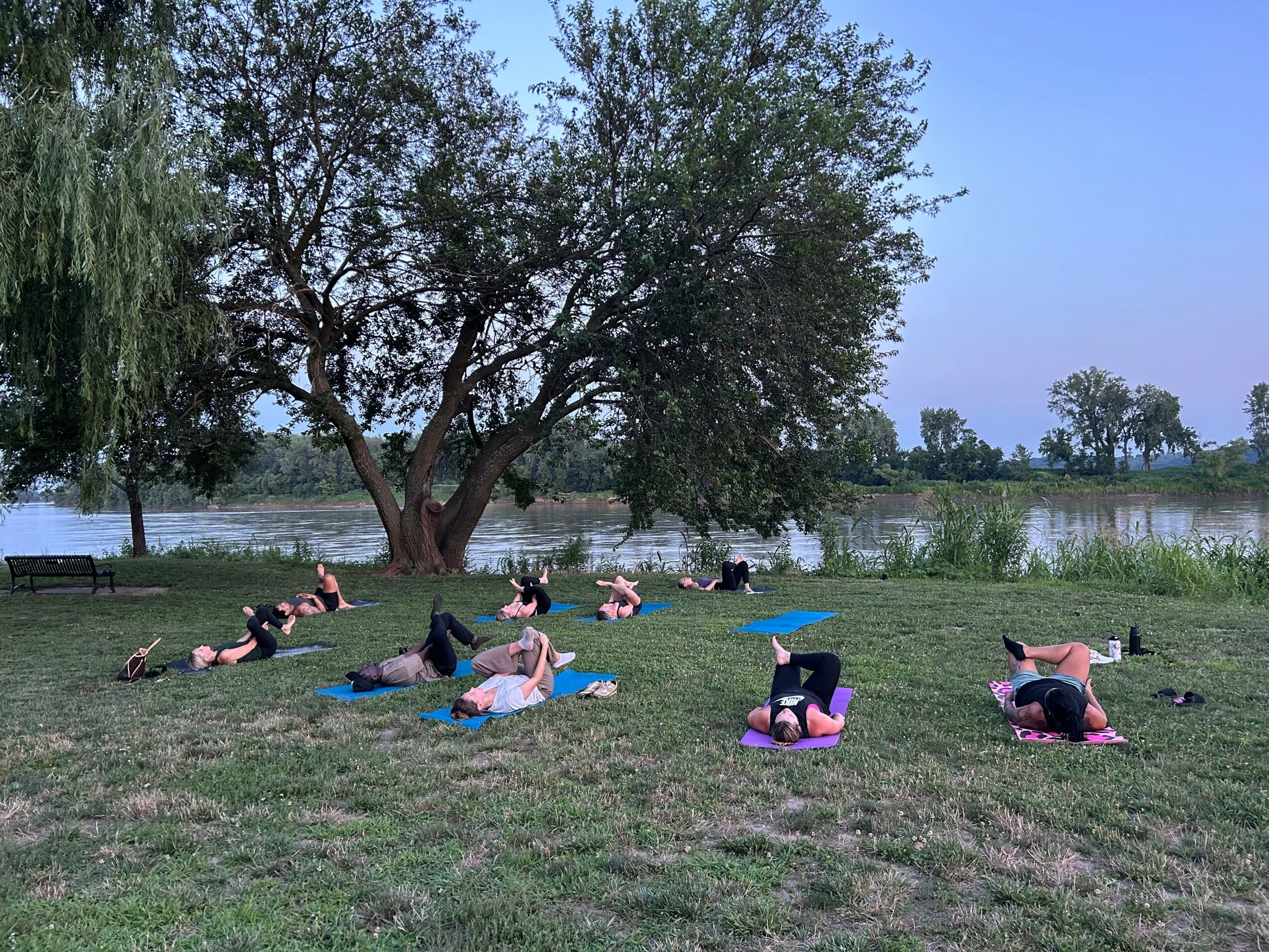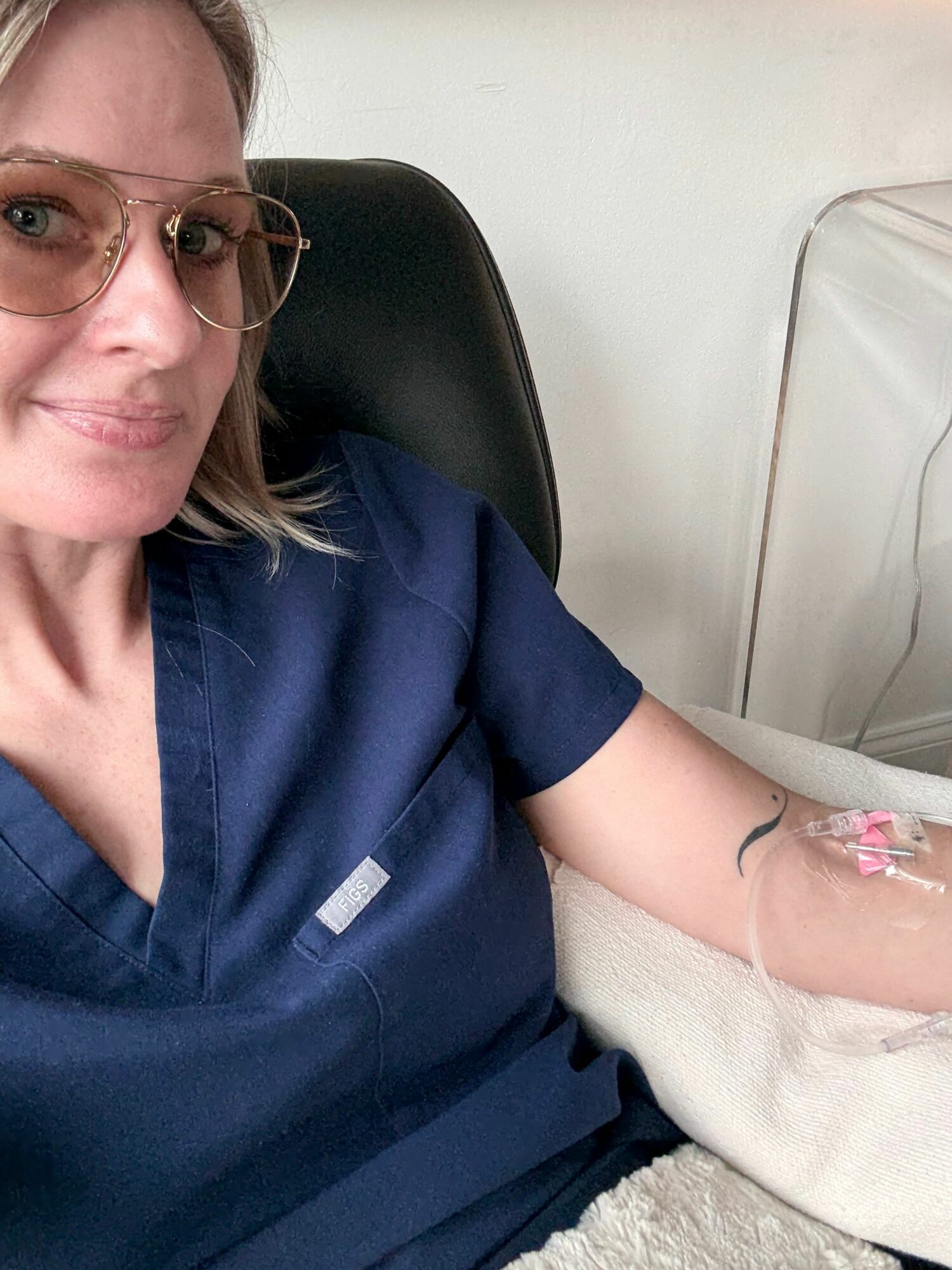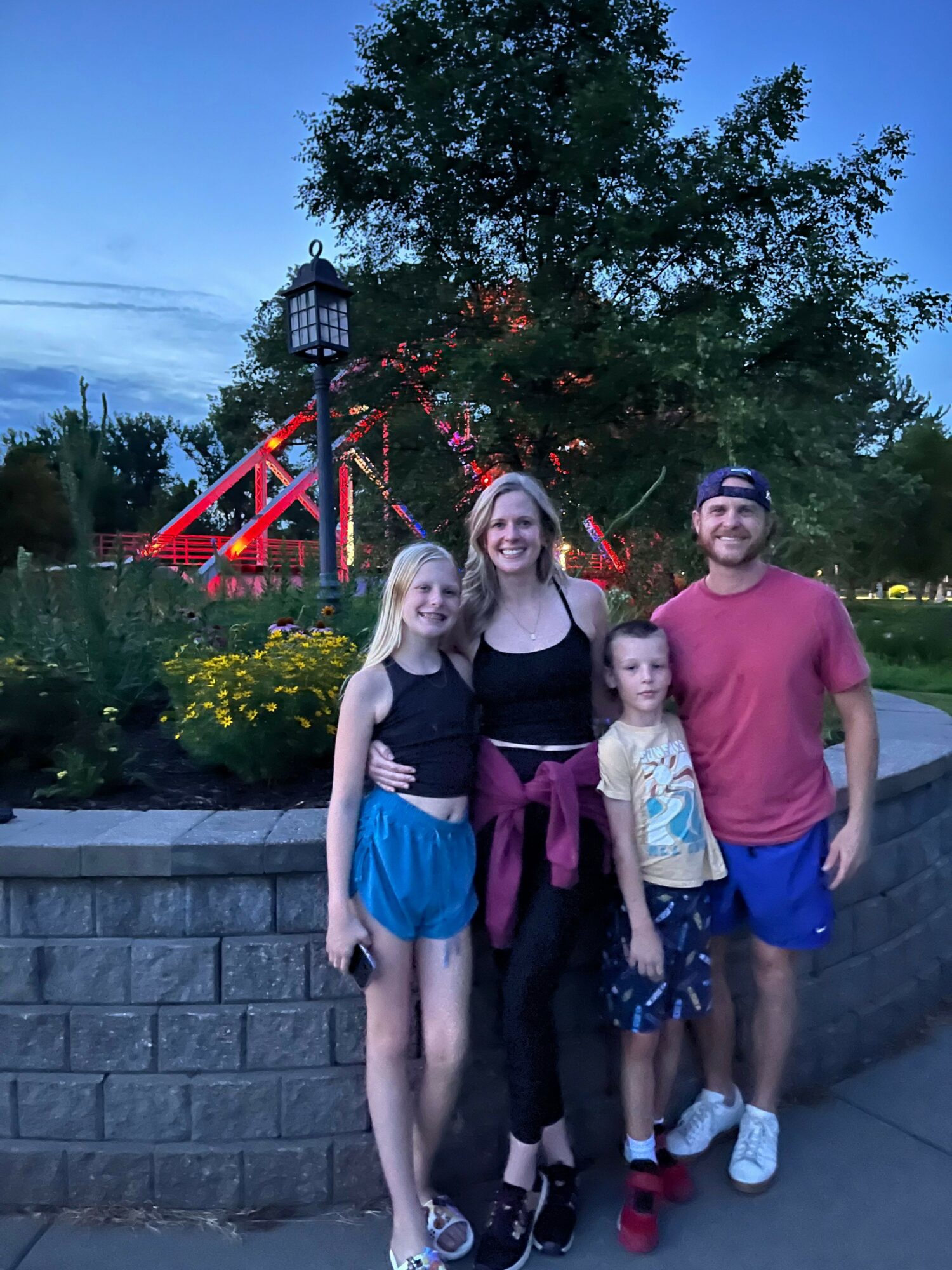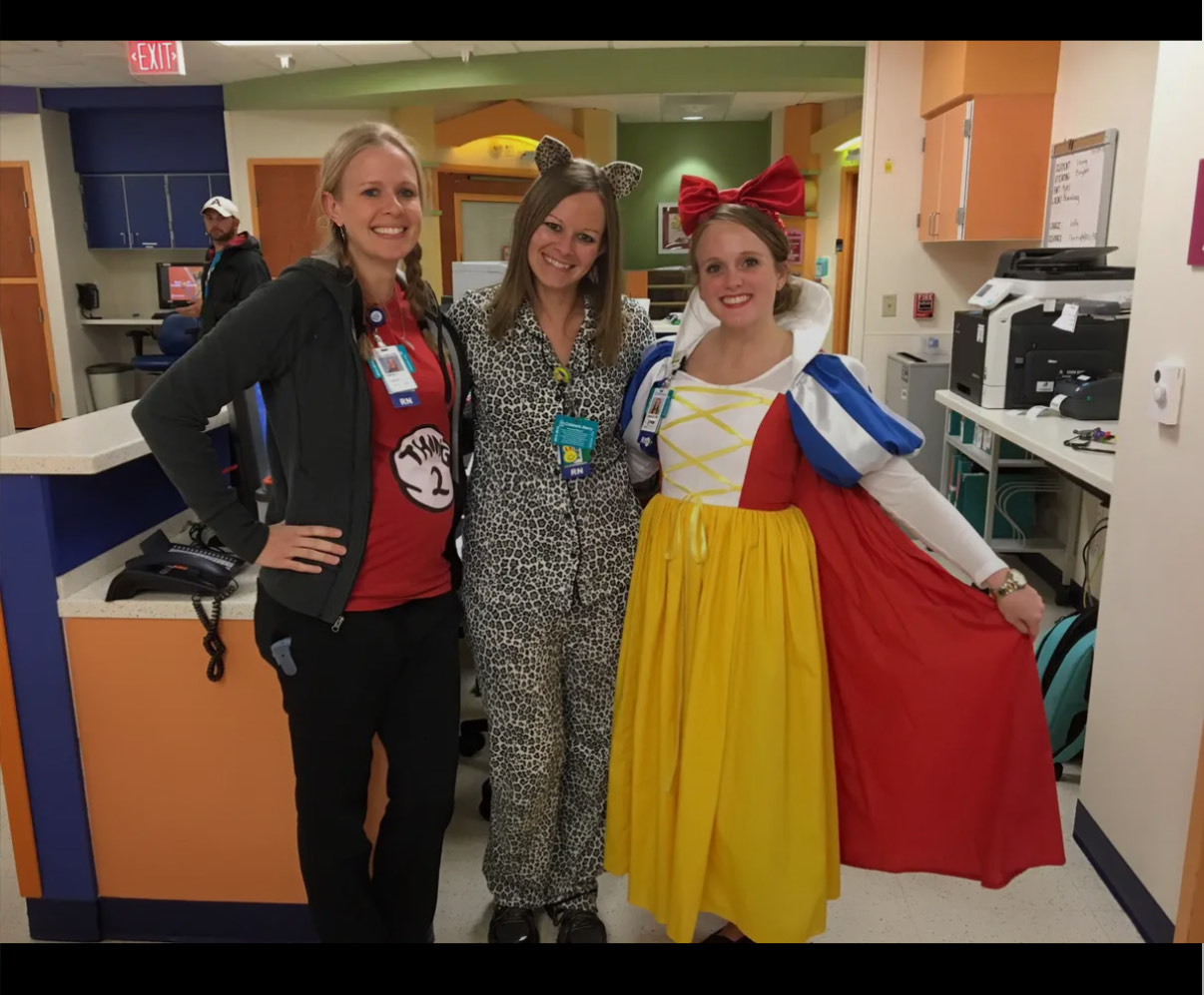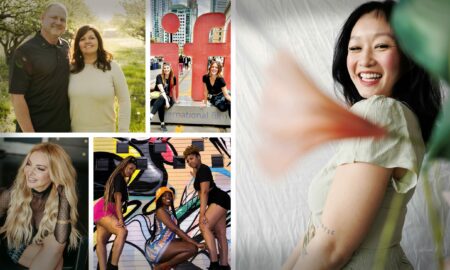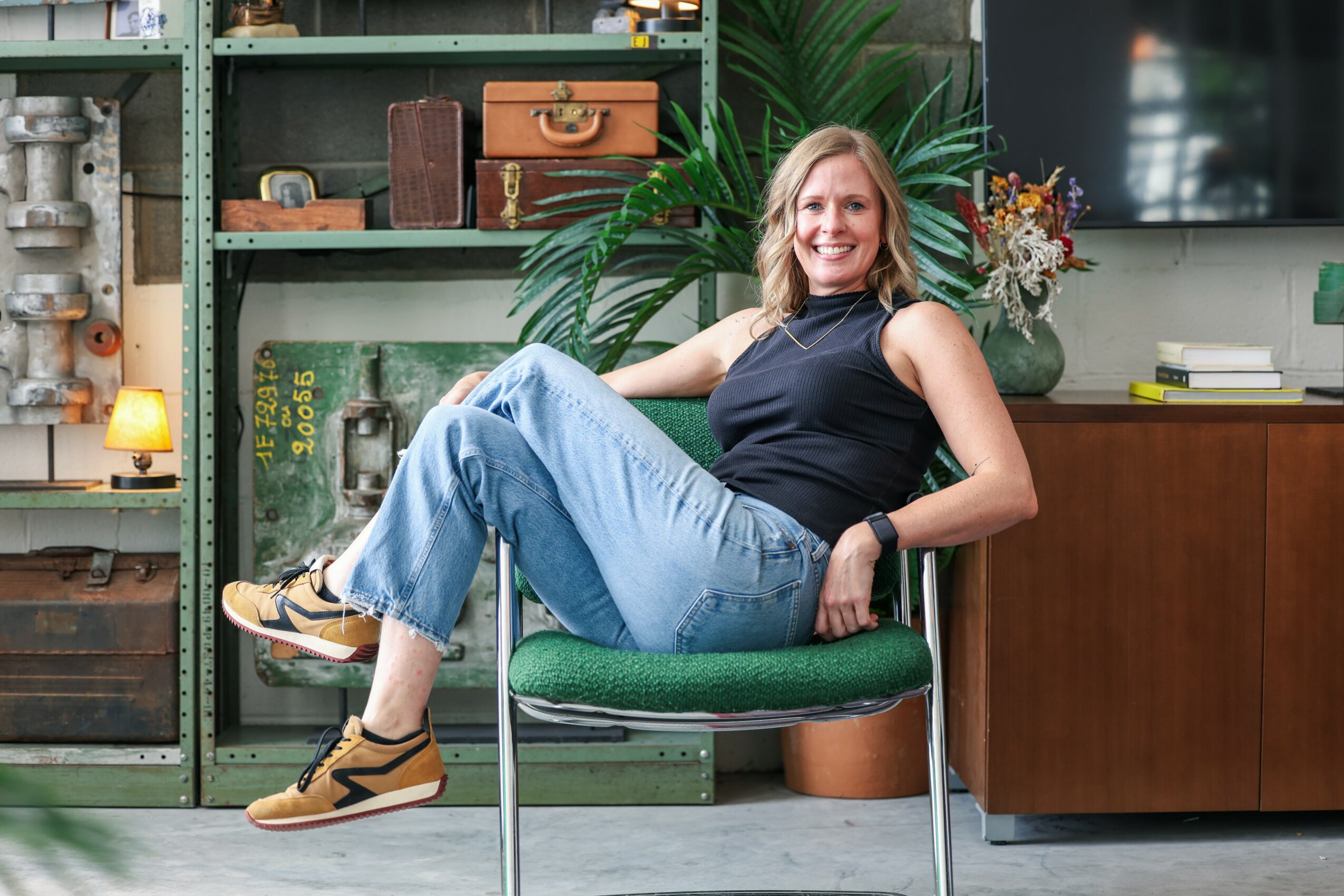

Today we’d like to introduce you to Katy Johnson.
Hi Katy, can you start by introducing yourself? We’d love to learn more about how you got to where you are today?
If you want to go all the way back, I’m a lifelong Kansas Citian – northland, to be specific. I grew up in a large family as one of seven children. After a brief family move to Colorado during my sophomore year, I came back to KC for my junior year of high school and jumped into adult life early. I’d known I wanted to be a nurse for as long as I could remember. Maybe it was the show ER, maybe it was watching my oldest sister become a physician, but that dream kept me going, even while working full-time and supporting myself.
When my cousin’s daughter was diagnosed with cancer at age two, everything shifted. I had originally wanted to be an ER nurse, but watching the bond she had with her caregivers during treatment became a guiding light for me. It helped me see where I was meant to be.
Life nudged me in that direction in unexpected ways. After being laid off from a data entry role, I took a job at a new restaurant across the street from my apartment. One night, while chatting with one of the owner’s wives, Betty Buck, I mentioned my dream of working in pediatric hematology/oncology. As fate would have it, she told me she worked on the exact floor I’d been dreaming about. Looking back, that layoff was exactly what I needed.
In 2006, I started at Children’s Mercy as a Care Assistant while finishing nursing school. After graduating in 2009, I transitioned into an RN role and went on to spend the next 15 years in pediatric hematology/oncology, bone marrow transplant, and later as a kidney transplant coordinator. Along the way, I earned my BSN in 2017 and my Master’s in Health Leadership in 2023.
In 2022, I stepped away from bedside and coordination roles to pursue work in the pharmaceutical industry. It was a big shift, but one I needed. After years of carrying unspoken trauma, I finally started to connect the dots between my career and the burnout, anxiety, and health issues I was seeing in myself – and later, in people I love who were going through the same cycles.
That’s when healing practices like Pilates, yoga, and therapy became lifelines for me. Around that same time, I read “The Body Keeps the Score”, which put language around what I had experienced for years. The idea for my non-profit, Reciprocity grew out of all of that: my background in pediatric transplant and oncology, my own journey with PTSD and burnout, and a deep belief that the people who hold so much for others deserve spaces to be held themselves.
Reciprocity is my way of building that bridge – connecting healthcare workers who need support with the community that’s eager to give it.
Alright, so let’s dig a little deeper into the story – has it been an easy path overall and if not, what were the challenges you’ve had to overcome?
No, the road has not been smooth. I wouldn’t call it rough either – more like a winding path with plenty of detours and obstacles.
Alongside supporting myself and navigating adulthood while still in high school, I was also dealing with mental health struggles I didn’t yet have the language for. At 38, I was officially diagnosed with ADHD and social anxiety. Looking back, the signs had always been there, but it wasn’t something people talked about openly. I became very good at masking, through academic achievement, hard work, and ignoring the signals my body was sending me. Without a soft place to land or the support I needed, those years formed layers of repressed anxiety.
In 2005, my boyfriend of two years died tragically in a car accident. My grief became another mask I wore, one that disguised a deep depression.
In 2006, I started working at Children’s Mercy. From the very beginning, I was passionate about the work, but passion in a high-burnout field doesn’t come without consequences. Like many young caregivers, I fell hard for my patients. While I wouldn’t say that’s inherently a problem, the reality of oncology is that boundaries are essential. After my first few inevitable patient losses, my mental health struggles intensified. I was young, working full-time while finishing nursing school, supporting my sisters and their kids, and trying to keep up with my peers socially. My coping mechanism became alcohol, a way to numb grief from losing Johnny, my patients, and eventually several family members.
For years, when people told me they couldn’t imagine doing my job, I gave the same line: “But it’s so rewarding. The kids are SO resilient.” And while that’s true, it also downplays the physical and emotional toll of working in a field with such high mortality.
The losses continued – grandparents, my uncle, and my stepmother, Rhonda, who died of cancer in 2017. My marriage ended in divorce in 2019, which was ultimately a healthy decision, but still difficult with two kids and a demanding role as a kidney transplant coordinator. Then came COVID: homeschooling, finishing my master’s degree, and helping my daughter through her dyslexia diagnosis. I was drained.
Burnout eventually pushed me to consider a LinkedIn message from a recruiter, which opened the door to the pharmaceutical industry. While the work was less physically and emotionally demanding, it came with its own challenges, job security was no longer guaranteed. I experienced my first industry layoff before returning to oncology in the CAR-T space.
Meanwhile, I knew alcohol was still a problem for me. It wasn’t something anyone confronted me about, but I recognized I was using it to mask social anxiety and tolerate situations that didn’t align with my values. On March 13, 2024, I woke up and decided I was done, for a little while, at least. That was the first day of my sobriety, which continues today.
Appreciate you sharing that. What else should we know about what you do?
My career started as a clinical RN, where I spent over a decade in pediatric hematology/oncology, bone marrow transplant, and kidney transplant coordination. In 2022, I transitioned into the pharmaceutical industry and now work as a Key Account Manager for a start-up company introducing an innovative form of cell therapy.
While I miss direct patient care and the immediate impact I once had, I’ve come to appreciate the impact this role allows me to make, though it’s often less visible and more long-term. My work gives me the chance to collaborate with some of the most brilliant and dedicated physicians, many of whom are still in the same pediatric BMT spaces where I started my career. I may not be the one designing new treatments, but my role is critical in making sure the right information reaches key opinion leaders who ultimately decide what’s best for the most vulnerable patients.
This industry is, in some ways, much easier than clinical nursing, but it requires a different kind of professional tenacity. There’s still stigma around the pharmaceutical industry, and that can make the work tricky. But I’ve been fortunate to only support products I truly believe in, and my background in pediatric hem/onc, along with my certification as a Pediatric Hematology and Oncology RN, has helped establish my credibility in conversations with clinicians.
Outside of pharma, I’ve thrown myself into somatic health and wellness practices. Yoga became a lifeline for me during my divorce in 2019, and Pilates deepened that journey in 2023. Alongside therapy and books like The Body Keeps the Score, those practices sparked another path: founding Reciprocity, a nonprofit dedicated to helping healthcare workers prevent and heal from career-related burnout.
I launched Reciprocity in March 2025 after sitting on the idea quietly for nearly a year. Right now, as founder and director, my focus is on building the foundation and spreading the word. Our current goal is to provide monthly somatic movement opportunities, free of cost, for healthcare workers in the Kansas City area. The next step will be partnering with studios around the metro for regular classes, with the longer-term vision of opening a brick-and-mortar space that offers a wider range of somatic movement, spiritual support, community, and resources.
Eventually, I’d love to see Reciprocity grow beyond Kansas City. My dream is to provide like-minded people across the country with the tools and lessons I’m learning day by day, because while I may not have a traditional business background, I do have a lot of passion and lived experience to guide the way.
Alright, so to wrap up, is there anything else you’d like to share with us?
One thing I’d like to add is that my mission isn’t just about helping healthcare workers understand burnout, what it is, how to prevent it, and why it matters—but also about getting the community involved. I don’t know many people who would dismiss the dedication healthcare workers give, but I want people to understand they can be part of this mission too.
The name Reciprocity and our tagline “give what you can; take what you need” are based on a simple truth: you can’t pour from an empty cup. Or, as the more familiar saying goes—you have to put your own oxygen mask on first. Think of it this way: if we keep expecting healthcare providers to save our lives without giving them oxygen, we will lose them too. Maybe slowly, but still a loss.
I’m not saying patients or families “owe” anything to the people who cared for them, especially not while they’re in the middle of illness or injury. That’s the time to focus on healing. What I am saying is that when you are well, and when you can, support the caregivers. Because the inevitable day will come when you or someone you love needs care, and in that moment, you’ll want a nurse, physician, or therapist who isn’t running on empty, but is filled up and ready to pour into you.
When the community steps up to support caregivers outside of their workplace, it doesn’t just help that one nurse, tech, physician, or therapist. It shows up in their work, in their patients, and in their families. When someone is facing the unimaginable, you want the best caregivers possible. And while I know countless peers who continue to give their all despite running on empty, eventually it catches up.
By supporting healthcare workers as whole people, the community helps keep the most dedicated RNs, CAs, MDs, PAs, NPs, SWs, CLSs, PTs, and OTs in the roles where we need them most, at your loved one’s bedside.
Pricing:
- No, donations only. But if they feel inclined to donate, they can do that here: https://www.reciprocitykc.org/donate
- They can also reach out via the website or our socials if they want to be involved. I would love to partner with individuals and businesses all over KC metro. https://www.reciprocitykc.org/contact
- Insta: https://www.instagram.com/reciprocity.kc/
Contact Info:
- Website: https://www.reciprocitykc.org/
- Instagram: https://www.instagram.com/reciprocity.kc/
- Facebook: https://www.facebook.com/people/Reciprocity-Collective/61577774972418/#
- LinkedIn: https://www.linkedin.com/company/reciprocity-collectivekc/?viewAsMember=true
